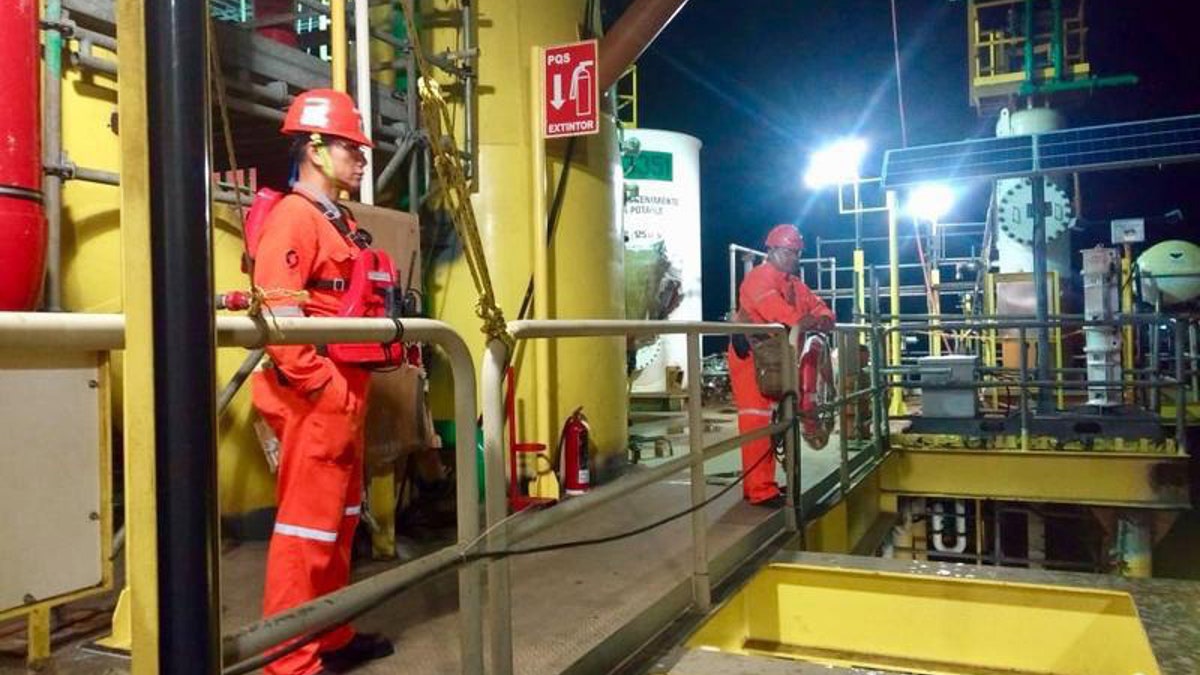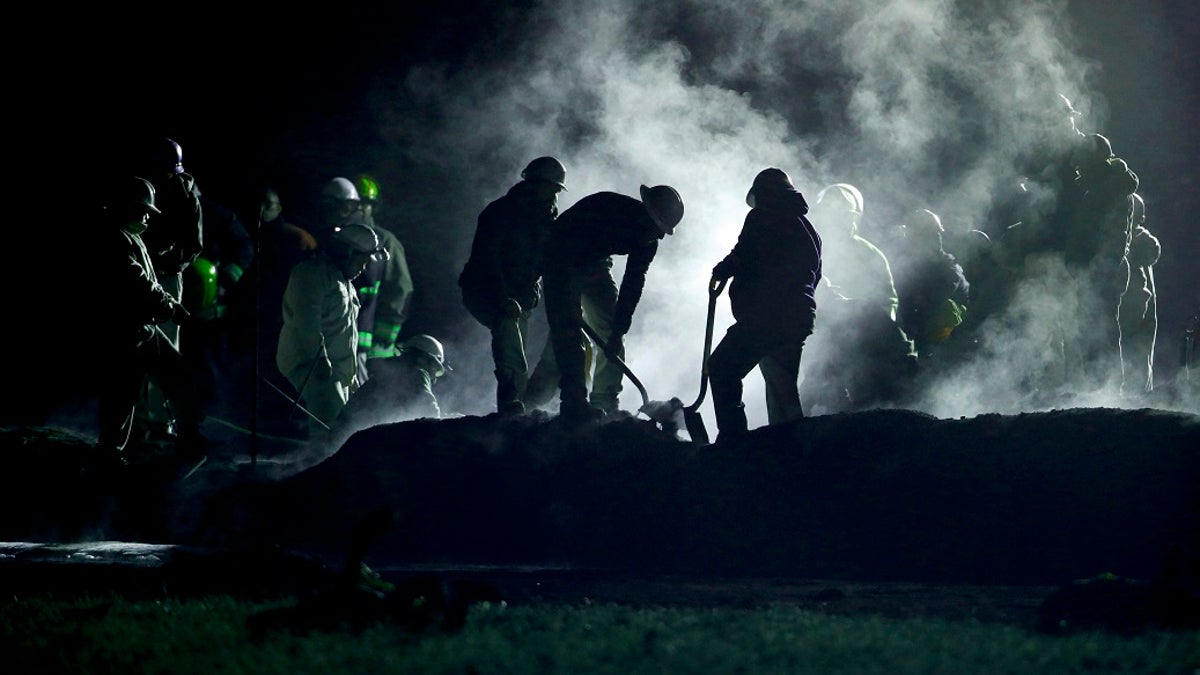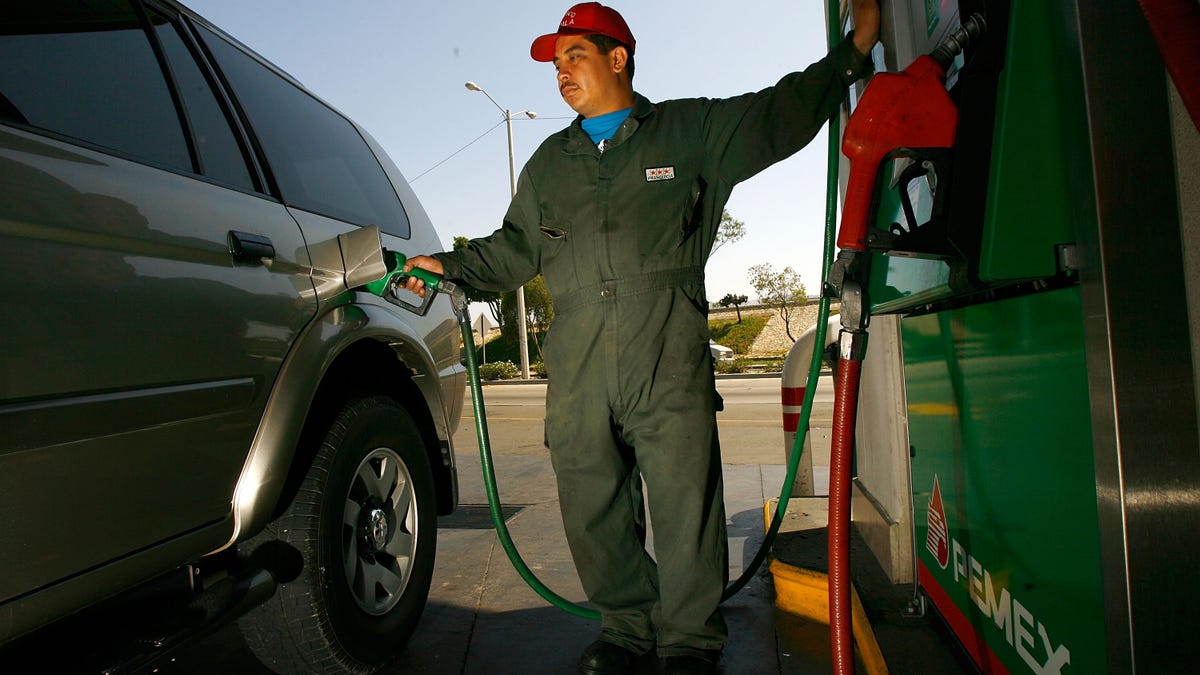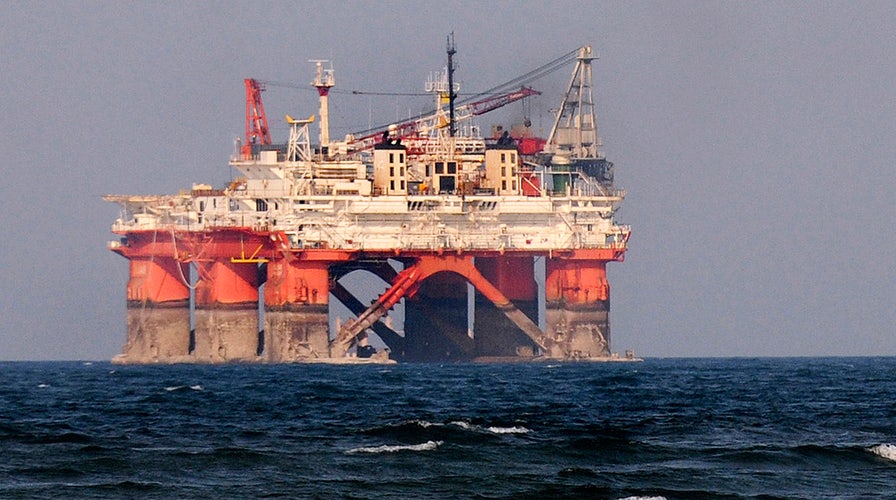Fox News Flash top headlines for Sept. 30
Fox News Flash top headlines for Sept. 30 are here. Check out what's clicking on Foxnews.com
MEXICO CITY – In the calm waters of the Gulf of Mexico, drilling platforms hum away under the sunshine. But, in the dark of the night, they are becoming more and more subject to vicious attacks launched by modern-day pirates.
“Although oil and diesel stealing has been going on for decades, there has been an increase in criminal activity reported in the last four years,” Johan Obdola, founder of the Global Organization for Security and Intelligence, told Fox News. “It is estimated that the stealing in Mexico is up to 1.18 million barrels a day, bringing millions to criminal organizations, and making it very difficult to control.”
And, controlling the matter is convoluted by the notion that little is known about the exact network of pirates who are believed to have been born out of local fisherman circles. Even corrupt government workers themselves have aided some of the piracy, experts have asserted.
Since he took office in December 2018, President Andrés Manuel López Obrador vowed to make oil theft a top national-security priority. This past January, officials shut down several Mexican Petroleum (Pemex) pipelines in an attempt to curb the smuggling and piracy, but the shortage triggered a schism among the oil-hungry cartels and a national deficit that angered people across that country.
Obrador also declared that the Navy would maintain perpetual surveillance of off-the-coast operations to protect against piracy. But, many analysts have contended that the problem only has worsened. According to the Maritime Herald, pirate robbery, aggression, and looting – including boats and marine thieves – rose some 310 percent in 2018, and experts say it has continued to rise.
Much of the piracy has been focused on offshore platforms operated by Pemex – Mexico’s state-owned oil company – resulting in massive losses reaching $1 billion in revenue annually.
Some officials have argued the modern-day piracy took on a life of its own around six years ago with the “energy reform” that sought to privatize some of the country’s oil industry and take away some of the substantial debt that Pemex was accruing.
In August 2014, Mexico implemented an overhauled energy reform policy – with controversial constitutional amendments designed to end the longstanding and entrenched state monopolies in its energy sector.
“Mexico's energy reform to allow for privatization became law back in August of 2014. This has taken the full control and corruption capabilities away from Pemex. For the past eight decades, Pemex has had full control of this mighty cash cow. The consumers had no different outlets than the Pemex gas station,” explained Lee Oughton, the managing partner and chief operating officer of the Mexico City-based Fortress risk-management company.
But, the private enterprise has also meant pirates and other illicit players would have more in which to meddle. The opening of the oil market has brought with it dozens of leading conglomerates to Mexico – and hundreds of active platforms – which have lacked security and remained vulnerable to intrusion, security analysts said.

A platform under protection. (Fortress)
Over the past two years, the country's navy has fielded more than 300 reports about the stealing of hydrocarbons in oil tankers and other critical equipment and machinery, ranging from pipework and communication equipment to cash, motors, and aluminum.
“Sea pirates aren’t always looking for oil, often what they want is this equipment to sell on the black market,” one Mexican ex-intelligence official explained.
Investigators also have documented numerous cases of pirates ambushing oil ships in Mexican seas and making illicit fuel transfers between ships, as well as boarding platforms and threatening personnel to complete robberies.
Pirates often have been disguised as fishermen, or as Mexican law enforcement or officials when boarding the platforms.
Despite the deployment of maritime surveillance ranging from ocean patrols to helicopters to interceptors, the rampant piracy has proven to be a steep challenge to squash. Sporadic spouts of severe violence have brought some attention to the piracy issue in recent years, and there's been no shortage of terrifying examples of pirates at play.
In 2010, American tourist David Hartley was out with his wife on Falcon Lake – part of the Rio Grande, a lengthy body of water hedging the United States and Mexico waters, when attackers dressed as Mexican police on fishing boats shot and killed him. It marked a string of several Mexican pirate attacks amid the international reservoir.
In April, Mexico Daily News reported that pirates locked up the crew of an oil rig in the Gulf of Mexico as they set about searching for anything of value. Over six hours later, as many as six pirates finally left and the rig’s captain was able to issue an emergency alert.

Pemex staff at the site of an oil pipeline explosion in Tlahuelilpan, Hidalgo state, Mexico, this past January. (AP Photo/Claudio Cruz, File)
Earlier this month, grainy cellphone footage emerged showing Mexican pirates boarding a vacation riverboat demanding money and possessions from passengers at gunpoint. Police said it wasn’t the first time such an incident had taken place.
But, sea pirates have been only one part of the fuel embezzling crisis. The public and the now-growing number of private oil companies operating in Mexico have had to contend with the huachicoleros -- people dedicated to stealing fuel and other commodities.
“Run very similarly like a cartel, with again the local communities supporting this group due to the availability to use cheaper fuel than filling up at the local gas stations. Some of their current strongholds are in the areas of Guanajuato, Hidalgo, Puebla, and Veracruz,” Oughton said. He added that when the new government came in, “the president sent around 5,000 troops to protect the pipelines from the huachicoleros. This initiative backfired [and was blamed for] an apparent fuel shortage... in January 2019. This was a smokescreen to lay blame at this group's feet and take away the... responsibility from their incompetence and inability to control these bad actors.”
The organized crime syndicate is reported to have stolen upwards of 14.5 million liquid gallons annually. Much of the criminal activity has taken place in a notoriously lawless patch known as the Red Triangle, stretching from Tepeaca, Palmar de Bravo and Quecholac to Acatzingo, Acajete and Tecamachalco.
“This is an enterprise creeping towards the billions. The illegal fuel sales have been an added avenue for the cartels to make money. The huachicoleros seem to be the named criminal entity to control the market. That being said, cartels have controlled the majority of the communities for years,” Oughton said. “This would suggest that there is a collaboration or synergies between these groups.”
More than 600 illegal pipeline taps, according to Pemex data, was recorded in the first six months of the year alone.
“Whole communities support it and go in and buy it directly because oil is expensive in Mexico,” one official explained. “They offer cheaper gas than the stations; they donate stolen fuel to those in need; they offer barrels as prayer offerings.”
INSIDE VENEZUELA’S TORTUROUS INTELLIGENCE AND DRUG-RUNNING BRANCH SEBIN
However, whole communities have suffered steeply from the associated violence. The fuel industry has ignited its own deep-seated war without frontlines and sandbags, just a nagging feeling of sinister uncertainty. Huachicoleros frequently have confronted police and military.
The oil-industry city of Coatzacoalcos in the Gulf state of Veracruz was hammered in August with a particularly harrowing violent spate, in which suspected members of the Jalisco New Generation Cartel blocked the exits at the Caballo Blanco nightclub and proceeded to set the room ablaze – killing some 28 people trapped inside. The attack allegedly was motivated by the notion that the club owner either had traded drugs from a rival gang or refused to make extortion payments.
Scores have been murdered or “disappeared” in the region in recent years, with little justice for their mourning families.
Guanajuato also has emerged as a combustion site for the fruitful criminal oil economy, dominated by the Santa Rosa de Lima Cartel, which was subject to a government crackdown in July of this year as the country’s financial intelligence unit froze almost $2 million in bank accounts connected to the oil-centric group.

A Pemex gas station attendant filling up a car in Tijuana, Mexico. (David McNew/Getty Images, File)
Moreover, in January of this year, a pipeline explosion killed at least 91 people in the central Mexican state of Hidalgo. Allegations of illegal taps on the highly-pressurized system soon emerged. In addition, static electricity from the clothing of people around the pipeline contributed to the blast, preliminary findings showed.
According to Obdola, oil revenues have become an increasingly fortune-amassing component of several cartels – ranging from the Gulf Cartel and the Zetas to New Generation and Sinaloa, once helmed by Joaquín “El Chapo” Guzmán.
The fragility of justice also has played a prominent role in the ongoing violence, with some 90 percent of crime and homicides going unpunished, according to think tank Zero Impunity.
Mexican officials who spoke on the condition of anonymity told Fox News that the piracy and oil-stealing issues were one of three main causes of concern, along with human trafficking and weapons trafficking.
Some official estimates contended that only 60 percent of the country's oil was distributed legally to the state-operated gas stations, with the other 40 percent channeled through illicit means. One intelligence official surmised that cartels with connections to the pirates and oil thieves even have operated entire gas stations with their illicitly extracted goods.
CLICK HERE FOR THE ALL-NEW FOXBUSINESS.COM
A portion is believed to leak back into the U.S. black market, too.
“But, the U.S. probably isn’t the biggest end consumer. The majority of the stolen oil would be utilized locally, also moving to Venezuela and Colombia in the Latin America region,” Oughton added, “even potentially going as far afield as China and the surrounding region.”

